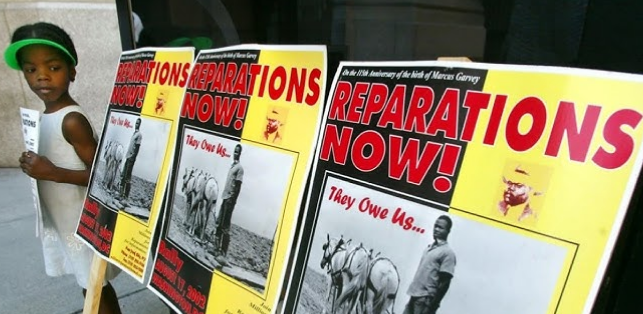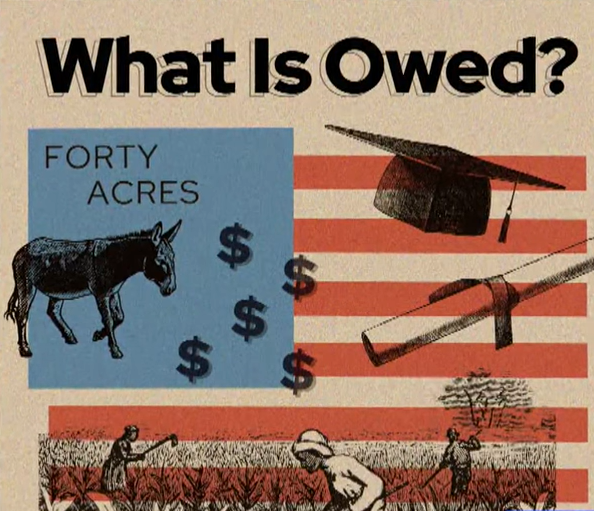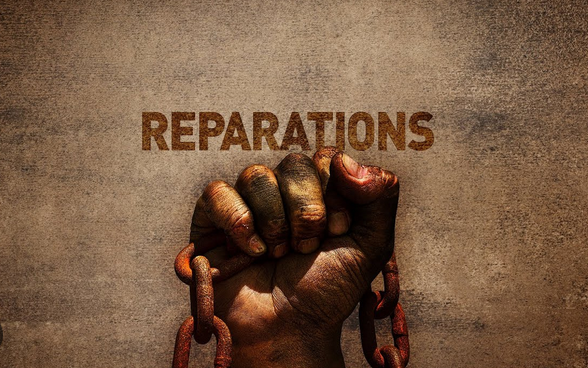Photos: YouTube Screenshots
September 25, 2025 – Today, Princeton University and Liberation Ventures survey experts released the 2024 Reparations Beliefs and Sentiments Poll. The poll presents a fascinating look at the interest and support for Reparations nationwide while exposing some of the challenges facing a growing movement that has seen 23 locales establish commissions to study and pass Reparations policy in last 5 years.

At the highest level, “Reparations” is the process of the state making amends for harm. While most people think of reparations simply as compensation, a wider variety of material, systemic, and symbolic repair for victims, their families, and broader society is involved. As defined by the United Nations, Reparations refers to measures by the government to repair violations of human rights by providing a range of material and symbolic benefits to victims, or their families as well as affected communities. components were considered in this poll. Reparations for Black Americans applies the UN Reparations framework to the human rights violations of U.S. chattel slavery and its legacies – including racial violence, Jim Crow, redlining and segregation, the war on drugs, and more. This requires reckoning, acknowledgement, accountability/cessation, and redress.

Poll highlights:
- Support for comprehensive Reparations is meaningful. More people support or are neutral on reparations than are opposed. 36% of people express some support for comprehensive reparations, which includes cash payments, an apology, and investments in Black communities. Another 19% express neither support or opposition. 46% indicate some degree of opposition.
- Support has more than doubled in 20 years: ~14% of people in 2002 expressed support for reparations cash payments, according to a 2002 Gallup poll, compared to 36% who expressed support for comprehensive Reparations that include payments in 2024.
- Political leanings play a role: With the election coming up, it’s also interesting to see that 49% of Democrats and 23% of Independents polled said a candidate’s support for Reparations would increase their support for that candidate. An additional 34% of Democrats and 39% of Independents polled also said that a candidate’s support for Reparations would have no impact on their support for the candidate (neutrality). This is in contrast to Republicans, for whom 62% say it would negatively impact their view of a candidate.
- Support for Reparations varies by type: Key elements of reparations, including criminal justice reform, investments in Black communities, and incorporating more education about slavery in school curricula, all garner more than 60% support
- Young people support Reparations: Nearly half of young people 18-35 support Reparations, signaling the movement could continue to see a growth in support over time.
- A significant hope gap: 36% of people express some support for Reparations but only 11% of people believe that federal Reparations will ever be implemented, sending a clear message to social justice organizers and elected officials that people want to see specific implementation plans in order to believe that their support will translate into political action.
- Comparison to past successful movements: Support for Reparations today is higher than support for same-sex marriage was in 1996 when the movement for marriage equality started coalescing. In 1996, support for same-sex marriage was 27%. Just 20 years later in 2015, the year that marriage equality was legalized nationwide, support for same-sex marriage was at ~57-60%.
It’s clear that in any movement for social change, understanding public opinion can be a powerful tool. Not only will this poll inform campaign strategies and decisions about resource allocation, but it will also help movements tell compelling stories, design policies that resonate with the public, and evaluate progress. While this is the first comprehensive reparations poll, for comparison over time Liberation Ventures compiled statistics from more than 50 previous polls from a range of organizations, universities, government agencies and media outlets, done since 1988. These are used to do a makeshift comparative analysis over time. Over time, the Reparations Beliefs and Sentiments Poll will establish a simpler baseline to assess population-level changes in beliefs and sentiments about Reparations over time.







